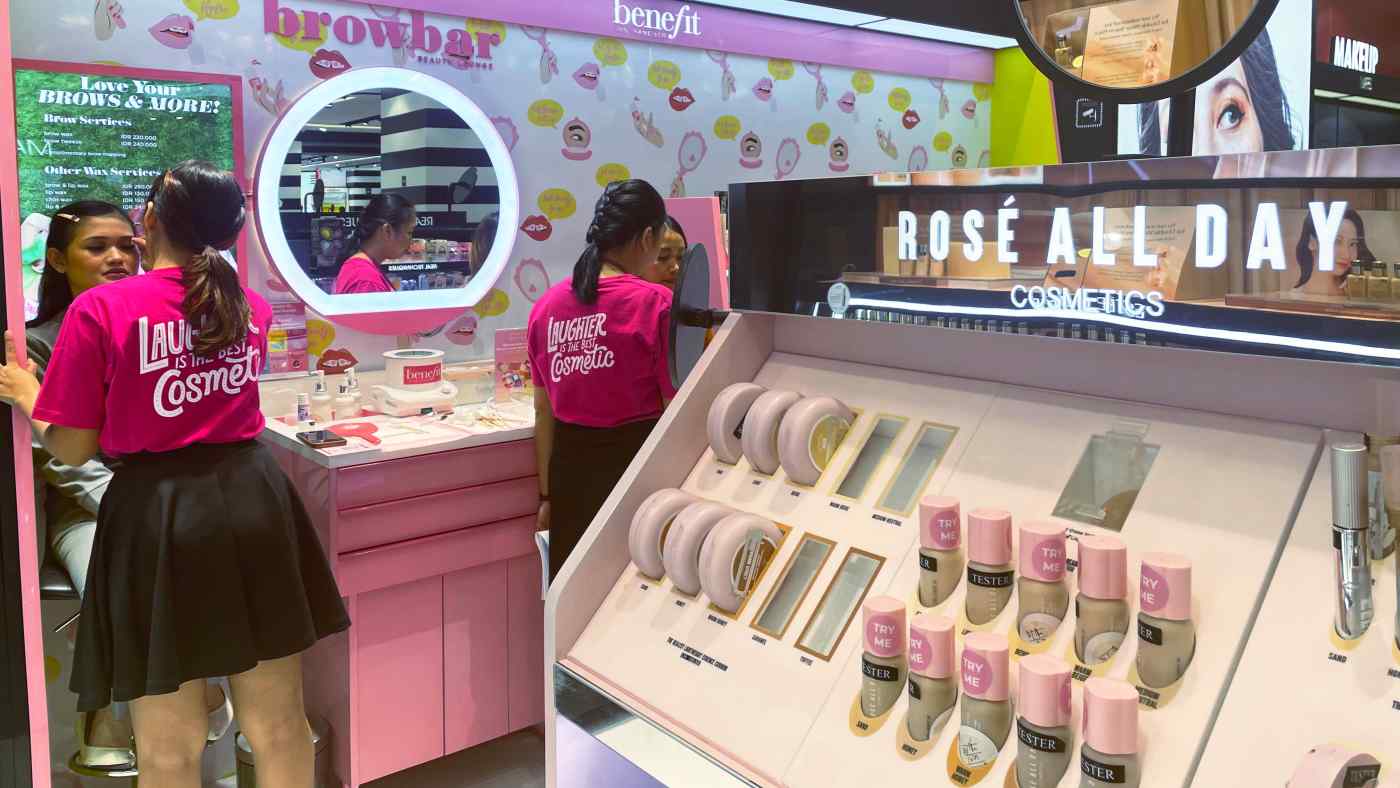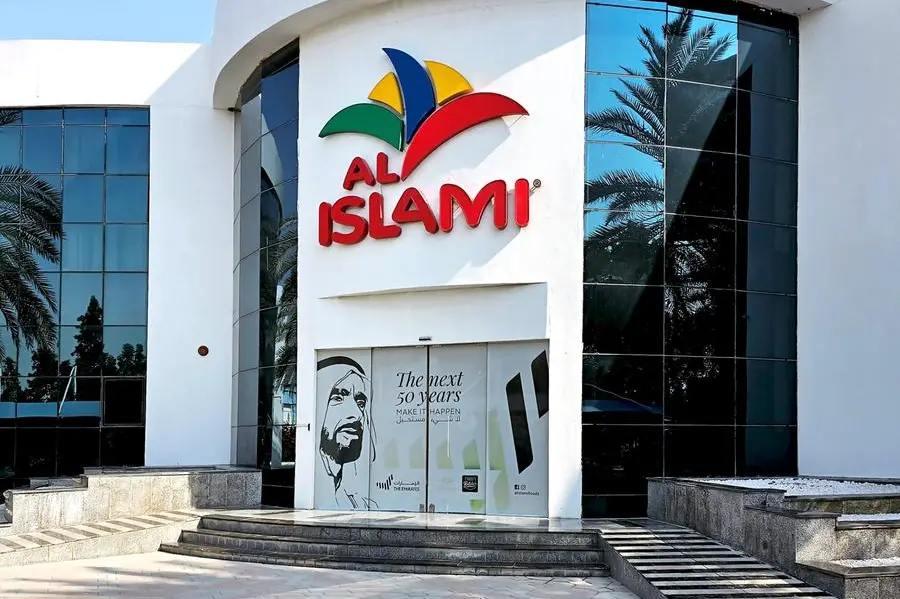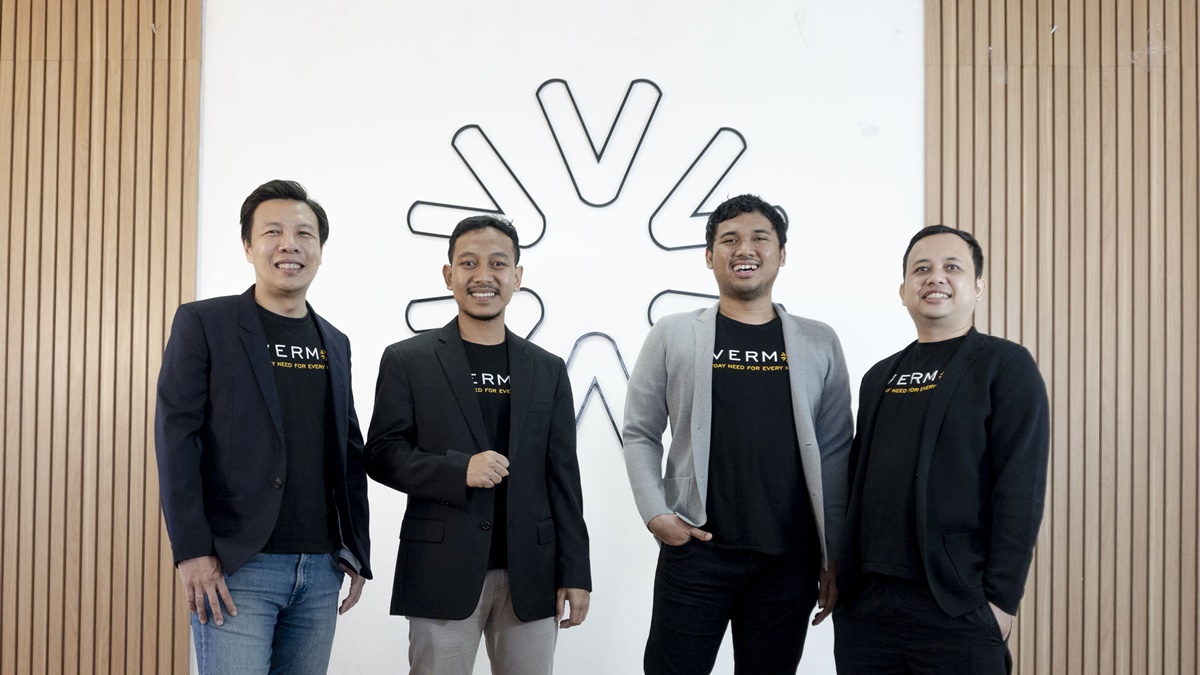NIKKEI ASIA –
Local beauty industry leverages halal certification in majority-Muslim country

Indonesian cosmetics brands such as Rose All Day are taking on European and U.S. competitors by emphasizing the needs of local customers. (Photo by Nana Shibata)
JAKARTA — Winny Triswandhani is a big fan of Indonesian cosmetics company Esqa’s concealer, which she uses to cover blemishes and dark circles under her eyes.
She had been using L’Oreal’s Maybelline New York brand but recently switched. “Their concealer is amazing,” she told Nikkei Asia. And not only is it good value for money, she added, it is also a good fit for Indonesia’s tropical climate. “I think that’s what I like with these local brand[s],” she said, citing their quality, price and suitability for Indonesian skin tone as well.
Indonesia’s beauty care market has long been dominated by European and American brands such as L’Oreal and P&G. But in recent years local consumers, especially young people, have shown growing interest in Indonesian brands like Esqa that offer halal products certified as being made in accordance with Islamic law and containing no forbidden ingredients.
Keva Cosmetics International, owner of the Esqa brand, offers halal makeup with vegan ingredients. Besides offering products online, the brand is also available at stores such as Indonesia’s Sociolla, Sephora of France and Hong Kong-based Watsons.
“Demand for halal products was very high because the majority of our population consider halal-certified products when it comes to their buying decisions,” Kezia Trihatmanto, co-founder of Esqa, told Nikkei, recalling what the Indonesian market was like when she returned from Los Angeles about 10 years ago. Although there was demand, there were no vegan makeup products on the market, Trihatmanto said.
To ensure all its customers felt comfortable buying its products, the company prioritized making its brand halal-compliant. “We created Esqa in 2016 as a halal beauty brand that is up to par with the global cosmetics scene,” she said.
Esqa has expanded elsewhere in Southeast Asia, including Vietnam, Singapore and Malaysia, and is aiming to enter new markets soon.
Rose All Day Cosmetics (RADC) is another Indonesian brand that is rapidly gaining popularity. Founded in 2017, the Jakarta-based company also has a halal-certifiied and vegan cosmetic brand. The company’s revenue quadrupled in 2022 from the year before. In 2023, it is on track to exceed last year’s sales by six times, RADC said.
Tiffany Danielle, the company’s co-founder, said the impetus for launching the business back in 2017 was the beauty care market’s domination by big international brands. “There was not a local beauty brand that we personally could relate to, in terms of branding and product selection,” Danielle said in an interview.
“There is also a sense of pride that consumers have for local brands started by local founders,” she added. “Our mission is to continue to disrupt the Indonesian beauty industry as an innovative force, and one day in the near future bring this brand to a global stage.”
While focusing on growing in Indonesia at its own flagship store, and through Sociolla, Sephora and Watsons, Danielle said her brand is now looking at venturing abroad. It plans to enter Malaysia by the end of this year. Malaysia, like Indonesia, is a majority-Muslim country and RADC expects to see growing demand for its halal-certificated products there as well.
It is not just startups that are going aggressively into the halal space. Paragon Technology and Innovation, a leading Indonesian beauty company, also sells low-priced, halal-compliant cosmetics and skin care products in drugstores and on e-commerce sites.
While Western brands remain the top choice for increasingly wealthy consumers in Indonesia, their market shares have been shrinking as local brands catch on.
In 2022, Unilever held 22.5% of the Indonesian market, followed by P&G at 7.6% and L’Oreal at 5.4%, according to Euromonitor International. But the combined share of the three companies is 35.5%, down from 42.6% in 2016. Meanwhile Paragon Technology and Innovation’s share has risen to 3.1% in 2022 from 1.9% in 2016.
In 2014, Indonesia enacted a law requiring halal certification for a wide range of consumer products sold in the country. The new “halal product assurance” regulations will be required for cosmetics by 2026, although companies will apparently be able to continue to sell non-halal products if identified as such.
While making halal products is not technically difficult, some global companies are concerned about the cost of setting up special facilities for that purpose.
“We want to develop halal products in Indonesia, but it takes time and effort to set up a production line, and it is difficult to persuade the head office to agree,” said an executive with a major foreign brand who asked not to be named.






